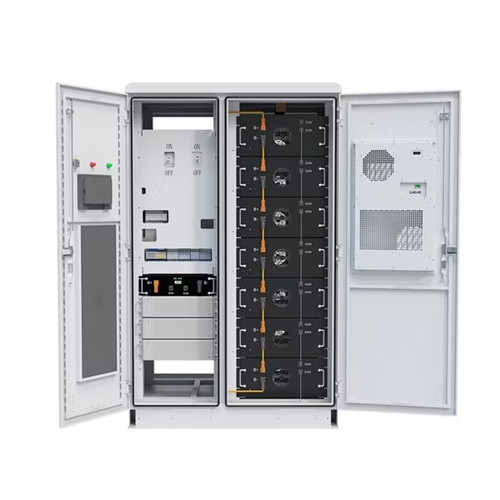About Battery energy storage power
A battery energy storage system (BESS) or battery storage power station is a type oftechnology that uses a group ofto store . Battery storage is the fastest respondingon , and it is used to stabilise those grids, as battery storage can transition from standby to full power in under a second to deal with .
As the photovoltaic (PV) industry continues to evolve, advancements in Battery energy storage power have become critical to optimizing the utilization of renewable energy sources. From innovative battery technologies to intelligent energy management systems, these solutions are transforming the way we store and distribute solar-generated electricity.
When you're looking for the latest and most efficient Battery energy storage power for your PV project, our website offers a comprehensive selection of cutting-edge products designed to meet your specific requirements. Whether you're a renewable energy developer, utility company, or commercial enterprise looking to reduce your carbon footprint, we have the solutions to help you harness the full potential of solar energy.
By interacting with our online customer service, you'll gain a deep understanding of the various Battery energy storage power featured in our extensive catalog, such as high-efficiency storage batteries and intelligent energy management systems, and how they work together to provide a stable and reliable power supply for your PV projects.
6 FAQs about [Battery energy storage power]
What are battery storage systems?
Battery storage systems will play an increasingly pivotal role between green energy supplies and responding to electricity demands. Battery storage, or battery energy storage systems (BESS), are devices that enable energy from renewables, like solar and wind, to be stored and then released when the power is needed most.
What is a battery energy storage system (BESS)?
A battery energy storage system (BESS) or battery storage power station is a type of energy storage technology that uses a group of batteries to store electrical energy.
How does a battery storage system work?
A battery storage system can be charged by electricity generated from renewable energy, like wind and solar power. Intelligent battery software uses algorithms to coordinate energy production and computerised control systems are used to decide when to store energy or to release it to the grid.
Who uses battery energy storage systems?
The most natural users of Battery Energy Storage Systems are electricity companies with wind and solar power plants. In this case, the BESS are typically large: they are either built near major nodes in the transmission grid, or else they are installed directly at power generation plants.
What is battery storage & why is it important?
Battery storage is one of several technology options that can enhance power system flexibility and enable high levels of renewable energy integration.
Can battery energy storage power us to net zero?
Battery energy storage can power us to Net Zero. Here's how | World Economic Forum The use of battery energy storage in power systems is increasing. But while approximately 192GW of solar and 75GW of wind were installed globally in 2022, only 16GW/35GWh (gigawatt hours) of new storage systems were deployed.
Related Contents
- Power of photovoltaic energy storage battery
- Power station energy storage battery module on sales
- Battery energy storage for ljubljana power grid
- Risks of battery energy storage power stations
- New power australia energy storage battery prices
- Energy storage battery bms power supply mode
- Iraq power grid energy storage battery
- Energy storage battery power loss standard
- Lithium battery energy storage and power
- Energy storage power station battery detection
- Power and energy storage battery
- Power and energy storage battery research


